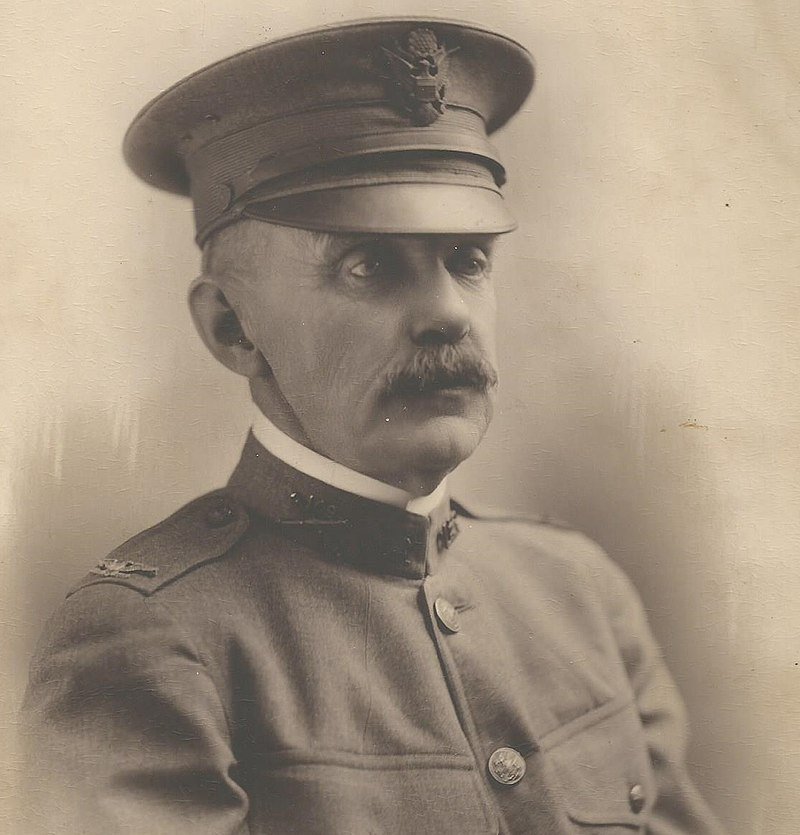RARE! WWI Oise-Aisne Offensive (August 25th, 1918) Commanding Colonel Asher Miner 109th Field Artillery Western Frontline Combat "OPERATIONS REPORT" (Hand Annotated)*















RARE! WWI Oise-Aisne Offensive (August 25th, 1918) Commanding Colonel Asher Miner 109th Field Artillery Western Frontline Combat "OPERATIONS REPORT" (Hand Annotated)*
Comes with a hand-signed C.O.A.
Dated: August 25th, 1918
This operation report was used during the Oise-Aisne Offensive, France as the 109th Field Artillery is credited with active combat participation in the Oise-Aisne from August 18th - September 7th, 1918.
*HEAILY MARKED OPERATIONS REPORT. NEW FIRING COORDINATES. VERY QUITE NO ENEMY FIRE ON THIS POSITION. FIRE WAS HEARD IN THE VICINITY. REQUEST FOR BARRAGES.
This extremely rare and museum-grade WWI front-line combat CONFIDENTIAL marked “Operations Report” comes from the bring-back collection of the infamous Commanding Colonel Asher Miner of the 109th Field Artillery during World War I. There are very few of these 109th Division Sector operations reports that exist because these reports were printed and done to update Commanding Colonel Asher Miner and high-ranking officers of the 109th Field Artillery combat operations. These reports provided insight such as changes in firing positions, casualties, firing orders, enemy movement reports, etc.
This is a once-in-a-lifetime chance to own the personal operations report used by Commanding Colonel Asher Miner of the 109th Field Artillery during World War I.
The American Expeditionary Force 109th Feild Artillery Regiment saw some of the most intense combat against the Germans in the front-line trenches of the Western Front. The 109th is credited with combat participation at Oise-Aisne, Ypres-Lys, Meuse-Argonne, Champagne 1918, and Lorraine 1918.
Colonel Asher Miner referred to his soldiers of the 109th being receiving a “Baptism of fire” when he and his regiment experienced heroism and suffering during almost two months of continuous shell fire that brought death and injury to many and reduced all to mental and physical breaking points.
“The 109th Feild Artillery Regiment entered the “Advanced Zone” on August 7th, 1918. From the night of August 11th, 1918 the First Battalion went into position, and on August 12th, 1918 the Second Battalion relieved a French Battalion and took over their positions. From that night on the men and officers and the 109th were under almost continuous shell fire, and the 109th Field Artillery expanded during that time 23,000 rounds of high explosives, gas, and shrapnel shells fighting day and night, often to the point of exhaustion by both officers and men.”
While leading his regiment during the Meuse–Argonne offensive, Colonel Asher Miner was severely wounded in fighting near Apremont, Ardennes. During the battle, one of Miner's batteries was providing direct support to an advancing Infantry unit and was required to move to a new position after receiving German counterbattery fire. Asher personally went forward to direct the battery to a new firing position and was struck by shrapnel from an incoming shell. He received too many wounds to count, and the lower portion of his right leg was blown off. Despite his wounds, Miner continued to direct his troops until he lost consciousness, after which several soldiers carried him to the rear area for medical aid rather than waiting for an ambulance, an action that was later credited with saving his life by ensuring he received immediate treatment.
Distinguished Service Cross
AWARDED FOR ACTIONS - World War I
Service: Army
Rank: Colonel
Division: 28th Division, American Expeditionary Forces
GENERAL ORDERS:
War Department, General Orders No. 140 (1918)
CITATION:
The President of the United States of America, authorized by Act of Congress, July 9, 1918, takes pleasure in presenting the Distinguished Service Cross to Colonel (Field Artillery) Asher Miner, United States Army, for extraordinary heroism in action while serving as Commanding Officer, 109th Field Artillery, 28th Division, A.E.F., at Apremont, France, 4 October 1918. One of the batteries of the regiment commanded by this officer, assigned to an advanced position in direct support of an infantry attack, was heavily shelled by the enemy while it was going into action. It being necessary, therefore, to take another position, Colonel Miner went forward under heavy shell fire and personally supervised the placing of the guns in the new position. Colonel Miner continued his efforts until he received a severe wound that later necessitated the amputation of his leg.
______________________________
Army Distinguished Service Medal
AWARDED FOR ACTIONS
DURING World War I
Service: Army
Rank: Colonel
Division: 28th Division, American Expeditionary Forces
GENERAL ORDERS:
War Department, General Orders No. 89 (1919)
CITATION:
The President of the United States of America, authorized by Act of Congress, July 9, 1918, takes pleasure in presenting the Army Distinguished Service Medal to Colonel (Field Artillery) Asher Miner, United States Army, for exceptionally meritorious and distinguished services to the Government of the United States, in a duty of great responsibility during World War I. Colonel Miner served with notable success as Commanding Officer of the 109th Field Artillery, 28th division, giving proof of high qualities of leadership. Inspiring his men by his self-sacrificing devotion to duty he maintained a creditable standard of efficiency in his regiment and constantly furnished the most effective artillery support to the attacking Infantry.